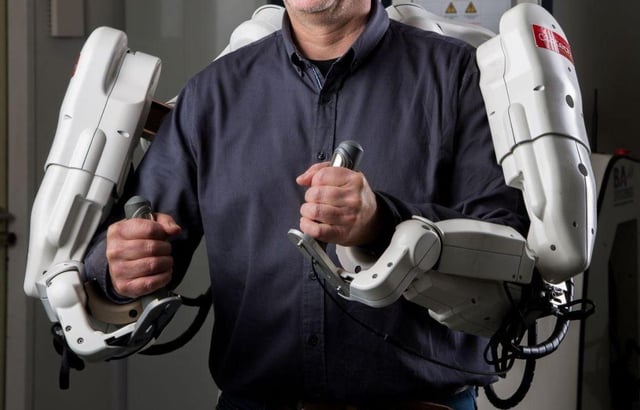I can't even imagine what this would cost. Hospitals won't buy it and you can't get enough rehab hours out of it to fully recover while in the hospital.
You can ask your doctor what else is available out there in the intersection of these sets.
upper limb (396)
exoskeleton (131)
Arm Light Exoskeleton
University of Portsmouth(UK) leads the way in pioneering exoskeleton design for stroke patients
SCIENTISTS at the city’s university are pioneering a robotic exoskeleton that can help stroke victims to regain movement in their limbs.

Robot specialists at the University of Portsmouth’s School of Computing hope that, once built, the design will help rehabilitate nearly 200,000 stroke patients.
The three-year-project, which will bring together cutting-edge technology in artificial intelligence, virtual reality, cloud computing and exoskeleton control, has been awarded €5m funding, with over €770,000 going to the University of Portsmouth as lead partner.
Project leader, Dr Zhaojie Ju, commented: ‘This is an exciting project, which will help thousands of people to regain limb function and movement.
‘Our novel rehabilitation protocol combined with the updated exoskeleton robot will be designed with improved functionality which will reduce the time of each treatment and allow for simultaneous and remote multiple treatments by therapists.
‘There is no other product on the market like this at the moment.’
The team are looking to develop an exoskeleton of sensing and interpreting devices to better recognise the motion intention of post-stroke patients during the rehabilitation process.
The University is working with eight other partner organisations across academia and industry to develop the life-changing design.
No comments:
Post a Comment